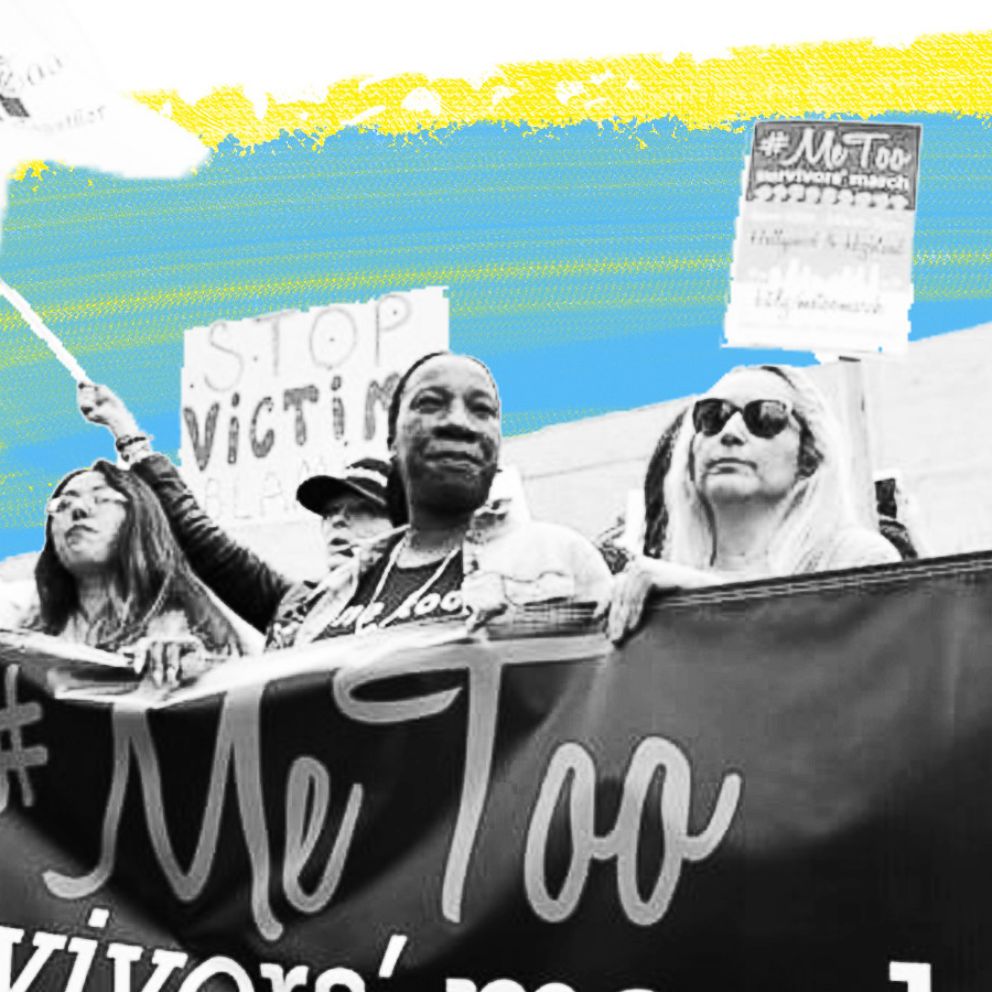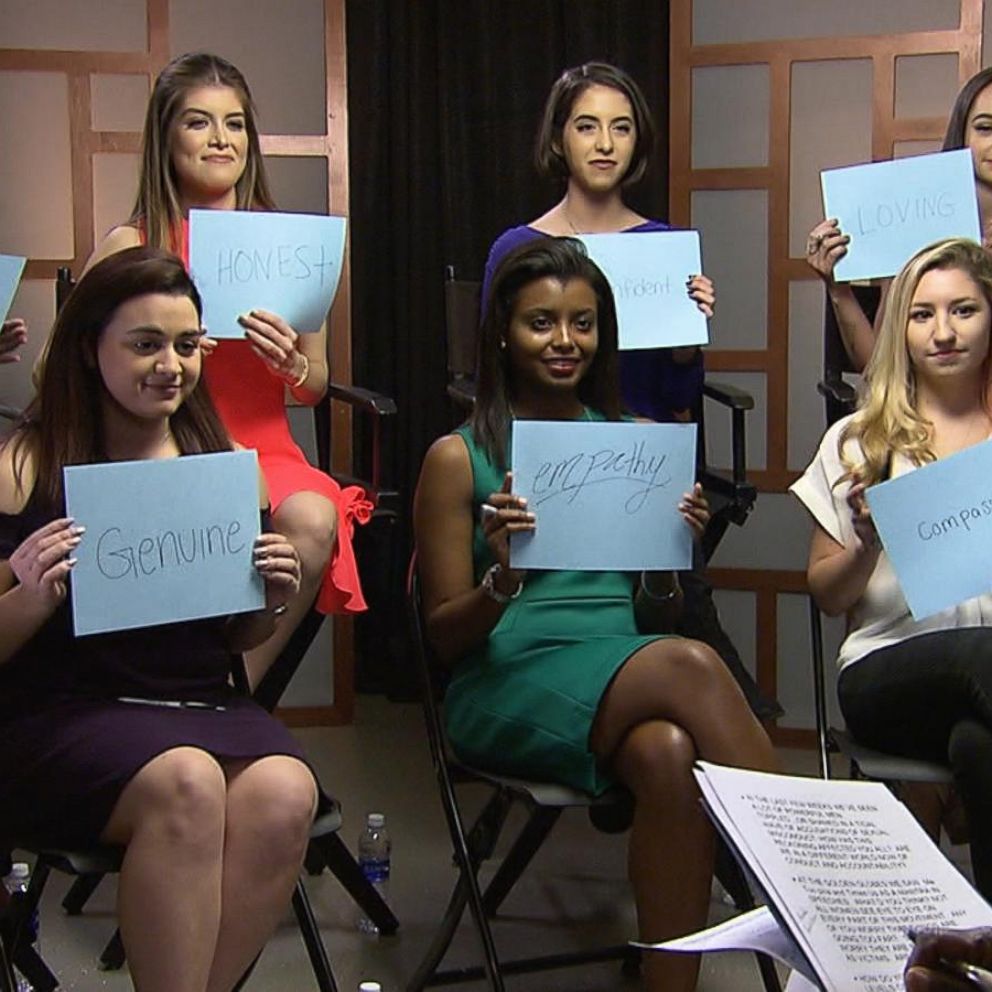'I'm glad I spoke out': Reporter kissed on live TV sends powerful message
"I'm glad I spoke out because I believe it has changed things."
Sara Rivest, a TV reporter in Kentucky, is not done talking about the now-viral moment when a man, a stranger, came up behind her and kissed her cheek during a live broadcast.
"So many women from all different professions have told me 'some guy kissed me on the bus the other day' or 'kissed me in the lobby of my apartment building' or 'touched me inappropriately,' or way worse," Rivest told "Good Morning America." "It's been really eye-opening and just speaks to the gravity of this problem."
Rivest, a reporter for WAVE 3 News in Louisville, was reporting from a music festival for the Sept. 20 evening news.
She recalled seeing a group of guys exit a car at the start of her live shot. A few seconds later, one of them had run into her shot, kissed her on the cheek and then run away.
"There was nothing my photographer or I could do in the moment because we had a job to do, so I said on air, 'That was so inappropriate,' and tossed to my story," Rivest said. "Once it cut to my package I just screamed at him, 'You're so rude!' But he was long gone by then."
Rivest's anger and shock rose when she returned to the station and watched the clip over and over, noticing for the first time that the man had also pretended to spank her.
She posted a clip of her live shot on Twitter with the message, "Hey mister, here's your 3 seconds of fame. How about you not touch me? Thanks!!"
Rivest said she knows she could have not shared the clip or shared it without the inclusion of the live-shot kiss, but she wanted to send a message to women -- and to men.
"This is one of those moments that so many people experience, but this was caught on camera," she said. "So many times they are not ... but this was one of those times we could clearly see a guy doing something wrong to a woman."
"I thought it was important to share that," she added.
Rivest's video caught the eye of local authorities who have since identified the man, Eric Goodman, 42, and charged him harassment involving physical contact, according to a copy of a criminal court summons Rivest provided to ABC News.
ABC News was unable to reach Goodman or his attorney. The Jefferson County Attorney's Office also did not respond to inquiries Friday.
Goodman did write an apology letter to Rivest that was delivered to her by police. Rivest, who said she has not spoken to Goodman, read his apology on the air.
"After watching the video, reading through the posts and listening to your explanation, I have found a new respect for how difficult it must [be] to be a reporter, specifically in this type of environment," Goodman wrote, in part. "I was wrong to interrupt your job, invade your personal space and leave you feeling powerless. Regardless, your ability to maintain a professional composure speaks volume of your strength."
In the days since Goodman was identified and charged, Rivest said she has felt like she was harassed all over again.
"The reactions have gone from being 99% positive to a lot of people being really nasty to me, with comments about me being fat and ugly and that he shouldn't be charged," she said. "It makes me feel vulnerable again. ... I'm having a hard time learning how to deal with that."
The backlash faced by Rivest is an example of why women often fear reporting harassment, whether it happens on the street or in the workplace, according to Deborah Vagins, senior vice president of research and public policy at the American Association of University Women.
"It's a very courageous thing to report because in all kinds of harassment, women can experience backlash," she said. "When women face backlash it can discourage them and other women from going forward and it also normalizes these behaviors that are unacceptable."
On the other hand, women speaking out about being sexually harassed is extremely powerful and important, Vagins points out. It is not only empowering and awareness-raising, but even more critically can remind people, especially women, that they have rights.
"People may not realize that if something happens to you on the street it could be a crime. If something happens at work, you may have recourse in a civil action," she said. "It's important that people know their rights so they can feel empowered."
Organizations like AAUW and Stop Street Harassment, a non-profit working to end gender-based street harassment, have resources available online to help people know their rights.
Rivest said the unwanted kiss she received "felt like a crime" but she didn't know if it was one until police told her it "absolutely was."
The type of harassment faced by Rivest, known as gender-based street harassment, can include everything from unwanted whistling and leering to persistent requests for someone's name, number or destination, flashing or groping, according to Stop Street Harassment.
A 2014 survey commissioned by the organization found that 65% of all women in the U.S. had experienced street harassment.
One week out from the controversy, Rivest said she believes Goodman's apology was sincere and that he's "changed through this" -- one reason she's glad she decided to put a spotlight on her experience.
"I don't even think this guy is bad," she said. "He's just a guy who though this was funny, and that's a problem."
"I'm glad I spoke out," she added, "because I believe it has changed things, even if just a little bit."







